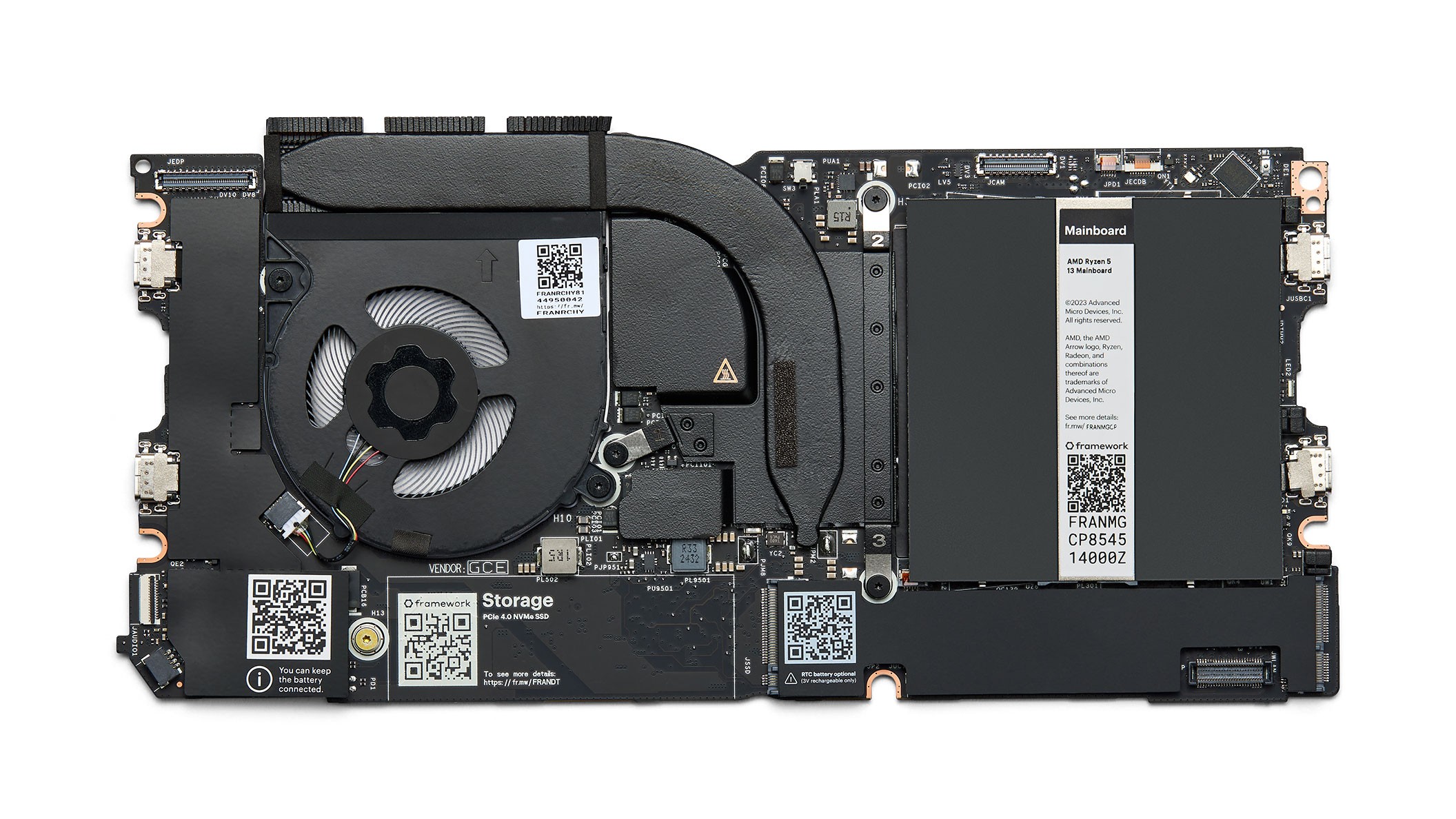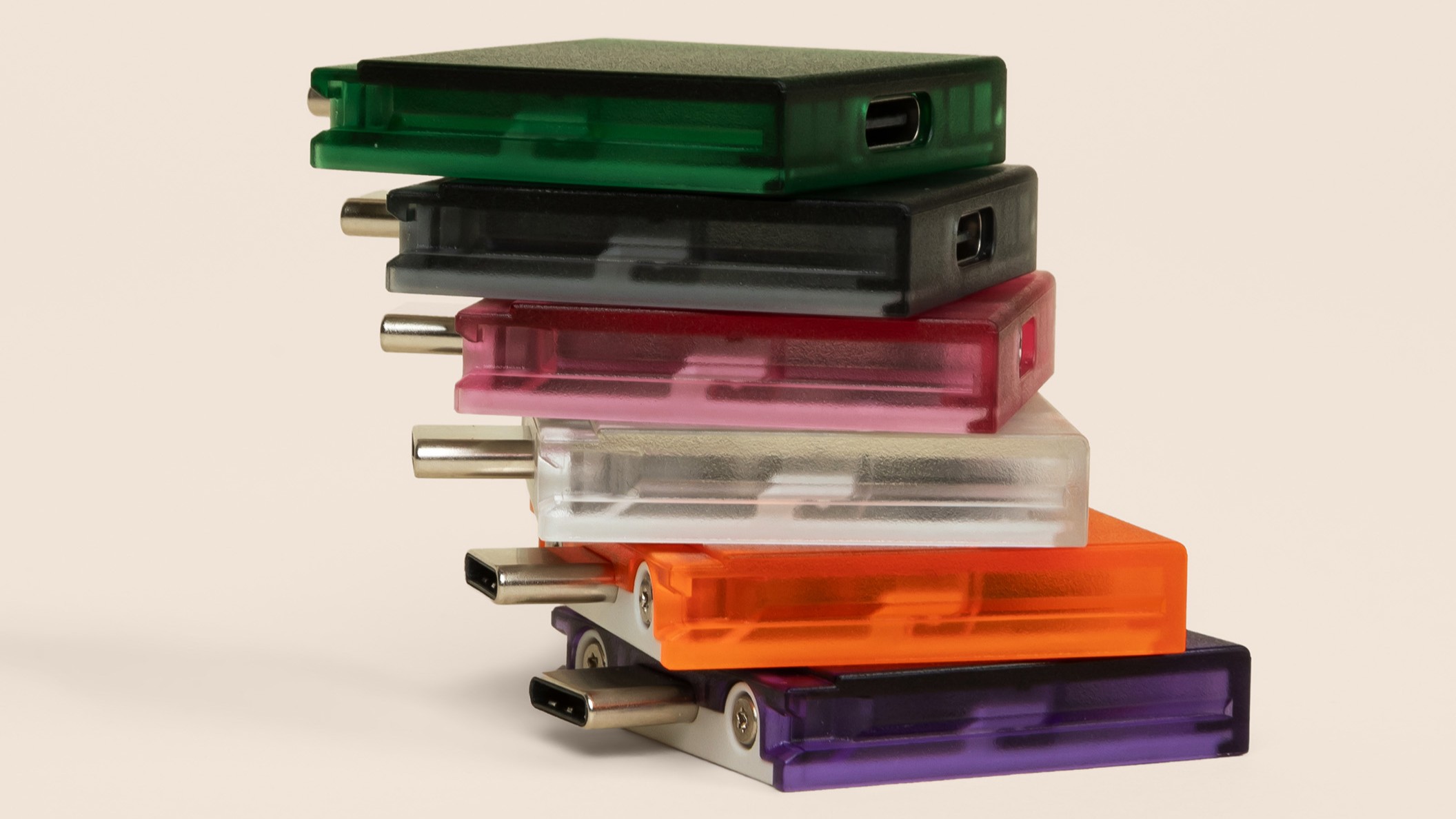Framework announced two new systems to its lineup today: the convertible Framework 12 and a gaming-focused (but not-very-upgradeable) mini ITX Framework Desktop PC. But it’s continuing to pay attention to the Framework Laptop 13, too—the company’s first upgrade-friendly repairable laptop is getting another motherboard update, this time with AMD’s latest Ryzen AI 300-series processors. It’s Framework’s second AMD Ryzen-based board, following late 2023’s Ryzen 7040-based refresh.
The new boards are available for preorder today and will begin shipping in April. Buyers new to the Framework ecosystem can buy a laptop, which starts at $1,099 as a pre-built system with an OS, storage, and RAM included, or $899 for a build-it-yourself kit where you add those components yourself. Owners of Framework Laptops going all the way back to the original 11th-generation Intel version can also buy a bare board to drop into their existing systems; these start at $449.
Framework will ship six- and eight-core Ryzen AI 300 processors on lower-end configurations, most likely the Ryzen AI 5 340 and Ryzen AI 7 350 that AMD announced at CES in January. These chips include integrated Radeon 840M and 860M GPUs with four and eight graphics cores, respectively.
People who want to use the Framework Laptop as a thin-and-light portable gaming system will want to go for the top-tier Ryzen AI 9 HX 370, which includes 12 CPU cores and a Radeon 890M with 16 GPU cores. We’ve been impressed by this chip’s performance when we’ve seen it in other systems, though Framework’s may be a bit slower because it’s using slower socketed DDR5 memory instead of soldered-down RAM. This is a trade-off that Framework’s target customers are likely to be fine with.

One of the issues with the original Ryzen Framework board was that the laptop’s four USB-C ports didn’t all support the same kinds of expansion cards, limiting the laptop’s customizability somewhat. That hasn’t totally gone away with the new version—the two rear USB ports support full 40Gbps USB4 speeds, while the front two are limited to 10Gbps USB 3.2—but all four ports do support display output instead of just three.
This Framework board will be the first to meet Microsoft’s requirements for the Copilot+ PC label, including still-in-preview features like Windows Recall. Copilot+ PCs support additional AI features that regular Windows 11 PC features don’t, and to run those features locally on your PC, Microsoft requires a neural processing unit (NPU) with the performance of at least 40 trillion operations per second (TOPS). The Ryzen AI 300 board will be Framework’s third with a built-in NPU—the AMD Ryzen 7040 and Intel Meteor Lake versions have them, too—but the first with an NPU that meets the Copilot+ requirements.
Framework says it will continue to sell older Ryzen 7040-based motherboards, too, at a slightly reduced price of $749. These are older processors, but they’re not that old—AMD still sells slightly warmed-over versions of the exact same silicon under its “Ryzen 200” branding.
Other odds and ends

Framework almost always uses a new board as an opportunity to release another batch of updated and revised accessories for current and future Framework Laptop 13 owners.
This time around, the company is giving the laptop a “new second-generation keyboard,” which retains “the same awesome-feeling 1.5mm key travel” but modifies wider keys like shift and the spacebar to “[reduce] buzzing when your speakers are cranked up.” The revision of the keyboard shipped with pre-built Windows laptops also adds Microsoft’s Copilot key, though a version with no Windows or Copilot branding (and a platform-agnostic Super key with the Framework gear logo in place of the Windows logo key) is still available for the DIY editions.
The other accessory update is cosmetic: Framework is now selling translucent purple, green, and black bezels and USB-C expansion cards you can use to add a little flair to your laptop. These will join the non-translucent orange, green, purple, and red USB-C expansion cards in Framework’s online store.